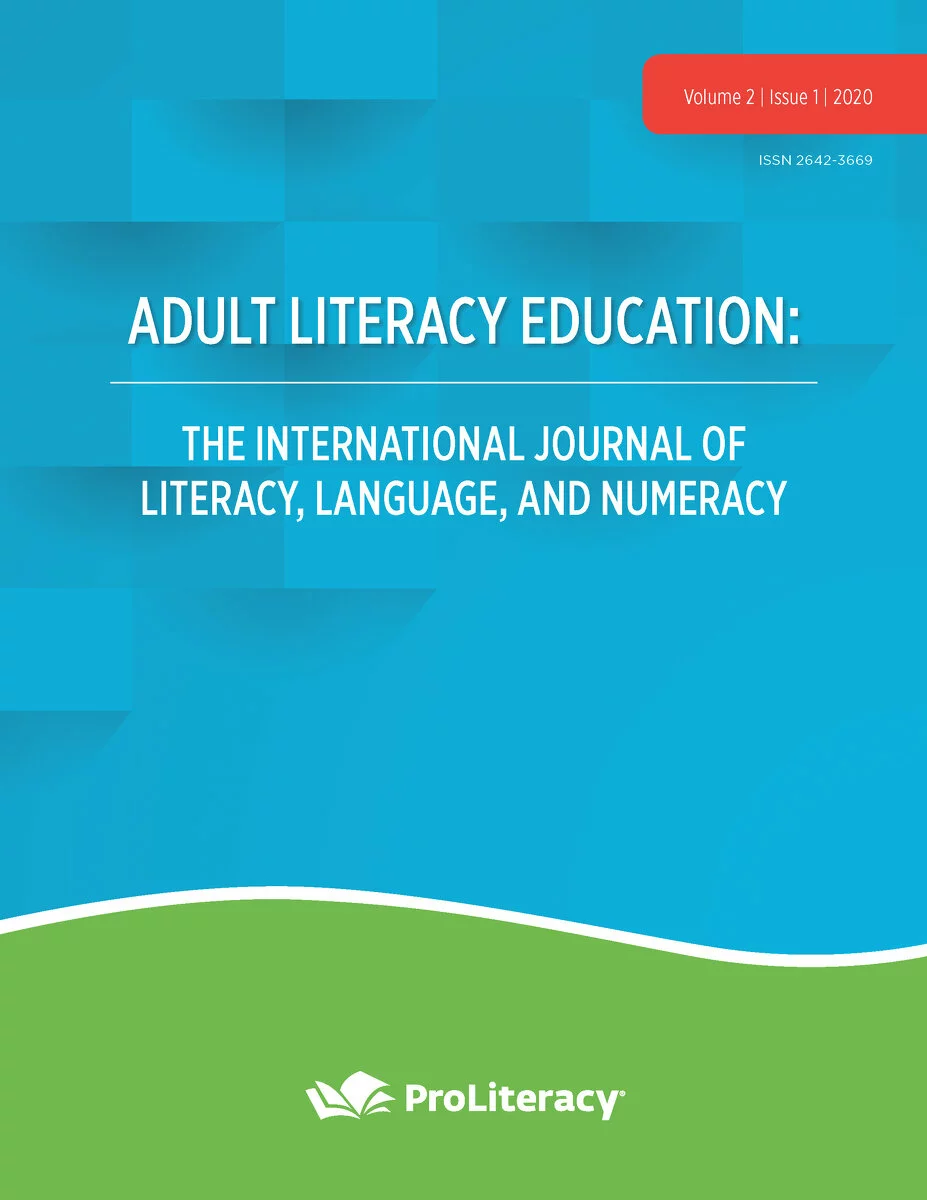Journal
The journal explores various aspects of adult literacy education. The Spring 2020 issue focuses on broadening the scope of outcomes in adult literacy education. It discusses the impact of adult education programs on employment and earnings, highlights the use of numeracy skills among adult learners, and emphasizes the need to support English language learners in numeracy instruction.
The journal also addresses the social benefits of adult literacy engagement and calls for a more comprehensive approach to adult basic education that considers learners’ complex needs.
This issue of the journal includes:
Research Articles
Author(s): J.D. Carpentieri and David Mallows – University College London, Institute of Education; José Pedro Amorim – University of Porto; Paulo Freire – Institute of Portugal
Description: The article discusses the challenges associated with evaluating adult basic education (ABE) policies and presents a case study of the New Opportunities Initiative (NOI) in Portugal.
Author(s): Margaret Becker Patterson – Research Allies for Lifelong Learning
Description: The article discusses the challenges faced by English language learners in gaining numeracy skills and highlights the importance of incorporating numeracy instruction in English language programs.
Viewpoint Article
Author(s): Jen Vanek – World Education, Inc.; Heide Spruck Wrigley – LiteracyWork International; Erik Jacobson – Montclair State University; Janet Isserlis – Rhode Island Adult Education Professional Development Center
Description: The article emphasizes the importance of collaboration among adult educators and social service agencies to support the integration of refugees and immigrants in the United States.
Forum: Broadening the Lens on Adult Literacy Education Outcomes
Author(s): Stephen Reder – Portland State University
Description: The article discusses the need to reposition adult literacy education within a new framework of lifelong and life-wide learning, as opposed to the neoliberal framework that currently dominates adult education.
Author(s): Judy Mortrude – World Education, Inc.
Description: The article discusses the role of federal funding in adult literacy education, emphasizing the need for lifelong and life-wide educational frameworks, equitable investments, and expanded measures of skill gain and impact.
Author(s): Ira Yankwitt – Literacy Assistance Center
Description: The article discusses the shift in discourse within the field of adult literacy education from a focus on “human rights” and “social justice” to “human capital” and “workforce development” language.
Resource Review
Author(s): Elisabeth Gee – Arizona State University
Description: The article discusses recent developments in adult basic education, including federal policies, changes in content standards, and the impact on literacy practices and instruction. It emphasizes the tension between broad and narrow approaches to literacy education.
Research Digest
Author(s): Bob Hughes – Seattle University; Christine Knighton – Highline College
Description: The article discusses the importance of transitions in adult basic education (ABE) and the shift in focus from basic skills to transitioning beyond those skills. It highlights the connection between ABE, employment, and economic advancement.
Technology Solutions for Adult Basic Skills Challenges
Author(s): David J. Rosen – Newsome Associates
Description: The article discusses the importance of assessing and teaching basic and advanced digital literacy skills for adult learners. It suggests various assessment tools and resources to address these skills.
